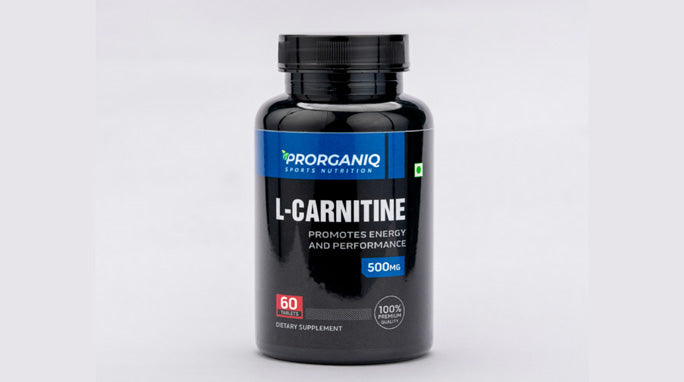Can You Take L Carnitine On An Empty Stomach

Imagine starting your day with the sun streaming through the window, a gentle breeze rustling the curtains. You're reaching for your supplements, ready to optimize your morning routine. But a question lingers in your mind: "Should I take my L-Carnitine on an empty stomach, or not?"
This article delves into the popular question surrounding L-Carnitine supplementation: is it best taken on an empty stomach? We will explore the science behind L-Carnitine's absorption, potential benefits, and the best practices for maximizing its effectiveness while minimizing any potential side effects. Understanding these nuances can help you make an informed decision about how to incorporate this supplement into your daily regimen.
What is L-Carnitine and Why Does it Matter?
L-Carnitine is a naturally occurring amino acid derivative that plays a crucial role in energy production. It acts as a transporter, shuttling fatty acids into the mitochondria, the powerhouses of our cells. This process allows the body to burn fat for fuel, which is why L-Carnitine is often associated with weight management and athletic performance.
Our bodies can produce L-Carnitine from the amino acids lysine and methionine, and we also obtain it from dietary sources, primarily red meat. However, supplementation is often considered to boost levels beyond what the body naturally produces or obtains through diet, especially for those with specific needs or goals.
Empty Stomach vs. With Food: Absorption and Bioavailability
The key question hinges on how well L-Carnitine is absorbed by the body under different conditions. The prevailing wisdom suggests that taking L-Carnitine on an empty stomach *might* enhance its absorption. This is because fewer other nutrients are competing for absorption in the digestive tract.
However, some research indicates that L-Carnitine absorption can be improved with the presence of insulin, which is released when you consume carbohydrates. Insulin helps to drive L-Carnitine into muscle cells, where it can be most effective.
Therefore, the optimal timing might depend on the specific form of L-Carnitine you are taking. For instance, Acetyl-L-Carnitine (ALCAR), a more bioavailable form that readily crosses the blood-brain barrier, may be less sensitive to the presence of food.
Potential Benefits and Uses of L-Carnitine
The potential benefits of L-Carnitine are diverse and well-researched. Athletes often use it to enhance performance, reduce muscle soreness, and improve recovery after exercise. Some studies suggest it can improve endurance by facilitating the use of fat as fuel, sparing glycogen stores.
Beyond athletic performance, L-Carnitine has shown promise in supporting heart health, cognitive function, and even male fertility. It is sometimes used as an adjunct therapy for conditions like angina and peripheral artery disease.
Moreover, L-Carnitine can be beneficial for individuals with certain metabolic disorders or those taking medications that deplete L-Carnitine levels. However, it is crucial to consult with a healthcare professional before starting any new supplement regimen.
Potential Side Effects and Considerations
While generally considered safe for most people, L-Carnitine can cause some side effects, particularly at higher doses. These can include nausea, stomach cramps, vomiting, and diarrhea. Some individuals may also experience a "fishy" body odor.
Individuals with kidney problems should exercise caution when taking L-Carnitine, as it can potentially exacerbate their condition. It's also important to note that L-Carnitine can interact with certain medications, such as blood thinners.
Always start with a low dose and gradually increase it to assess your tolerance. Paying attention to your body's response is key to minimizing any potential side effects.
Navigating the Conflicting Advice: A Practical Approach
Given the conflicting information about taking L-Carnitine on an empty stomach, a pragmatic approach is often best. Experiment with both methods to see which works best for you.
Consider your individual goals and lifestyle. If you're primarily interested in cognitive benefits, ALCAR on an empty stomach might be preferable. If you're focused on athletic performance, taking L-Carnitine with a carbohydrate-rich meal or pre-workout supplement might be more effective.
Listen to your body. If you experience any discomfort or side effects when taking L-Carnitine on an empty stomach, try taking it with food. There's no one-size-fits-all answer, and individual responses can vary.
Expert Opinions and Research Insights
Many nutritionists and sports medicine professionals recommend taking L-Carnitine with a meal to enhance absorption and reduce the risk of digestive discomfort.
"While absorption might be slightly better on an empty stomach for some, the overall benefit is often greater when taken with food, particularly carbohydrates,"states Dr. Emily Carter, a registered dietitian specializing in sports nutrition.
Research on the optimal timing of L-Carnitine supplementation is ongoing. A study published in the Journal of Strength and Conditioning Research found that taking L-Carnitine with carbohydrates significantly increased muscle L-Carnitine content compared to taking it alone.
However, other studies have shown that ALCAR can be effectively absorbed on an empty stomach, suggesting that the specific form of L-Carnitine plays a significant role.
Choosing the Right Form of L-Carnitine
Several forms of L-Carnitine are available, each with its unique properties and benefits. L-Carnitine L-Tartrate is often used for exercise performance due to its rapid absorption rate.
Acetyl-L-Carnitine (ALCAR) is preferred for cognitive enhancement and neuroprotection. Glycine Propionyl-L-Carnitine (GPLC) is sometimes used to improve blood flow and reduce muscle fatigue.
Understanding the differences between these forms can help you choose the one that best aligns with your specific needs and goals.
Conclusion: Empowering Your Supplement Strategy
The question of whether to take L-Carnitine on an empty stomach doesn't have a definitive answer. It depends on the specific form of L-Carnitine, your individual goals, and your body's response.
By considering the information presented in this article, experimenting with different approaches, and consulting with a healthcare professional, you can develop a personalized L-Carnitine supplementation strategy that optimizes its benefits and minimizes any potential side effects. Remember that informed decision-making is the cornerstone of a successful and sustainable wellness journey.
Ultimately, the best approach is the one that works best for you, allowing you to harness the potential benefits of L-Carnitine and support your overall health and well-being.


















